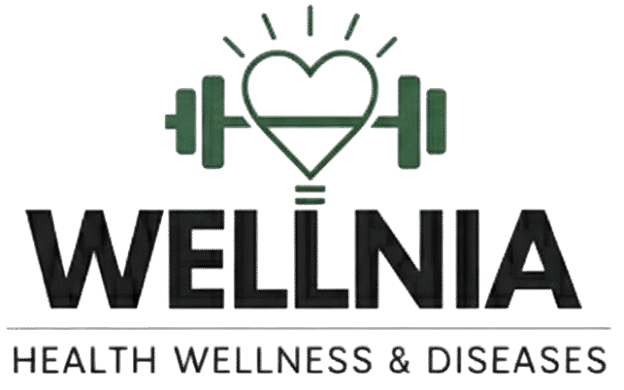Introduction: Let’s Talk About Masturbation (Teen Masturbation)
Masturbation is a natural and common part of human sexuality. While it’s often surrounded by taboo or misinformation, it’s something most people experience at some point in their lives. This blog aims to provide a clear, honest, and supportive understanding of masturbation, covering the myths, mental and physical benefits, and how to maintain a healthy balance
What Is Masturbation?
Masturbation is a natural part of growing up, especially during adolescence. As teens go through hormonal and emotional changes, it’s common for them to explore their bodies and understand their sexuality. While masturbation is not harmful in moderation, it’s important to be aware of how it can impact the mind and body when done excessively or without proper understanding.

This blog dives into the 10 key effects of teen masturbation, offering insight and guidance for both teenagers and parents navigating this sensitive topic
Teen masturbation refers to the act of self-stimulation for sexual pleasure by individuals typically between the ages of 13 and 19. It’s a natural and common part of adolescent development as teens explore their bodies, emotions, and emerging sexuality.
During puberty, hormonal changes increase sexual curiosity, and masturbation often becomes a way for teens to relieve sexual tension, understand their preferences, and explore their feelings privately.
1. Natural Curiosity and Self-Discovery
Masturbation is a normal and common part of adolescent development.It often begins during puberty as teens become more aware of their bodies and sexuality.
Teen masturbation is often a part of learning about one’s body. It helps teens explore their physical sensations and understand what feels good to them, which is normal and healthy in most cases.
2. Temporary Stress Relief
Masturbation can serve as a short-term stress reliever. During puberty, teens often experience intense emotions, and self-pleasure may help ease anxiety or nervous energy. However, it shouldn’t become the only coping mechanism for emotional challenges.
3. Overstimulation and Mental Distraction
When done frequently, Teen Tmasturbation can become a distraction from important activities like schoolwork, sports, or hobbies. Overstimulation can lead to brain fog or difficulty concentrating on daily responsibilities.
4. Emotional Guilt or Shame
Many teens, especially those raised in strict or conservative environments, may experience guilt or shame after masturbating. This emotional response can create inner conflict and reduce self-esteem, even though the act itself is not harmful.
5. Impact on Social Life
Excessive masturbation may lead to social withdrawal. Teens who use it as an escape might avoid social activities or close relationships, which can limit emotional growth and real-world interactions.
6. Risk of Pornography Exposure
Masturbation often begins with or evolves into porn consumption. Teens who frequently rely on porn may develop unrealistic expectations about sex, relationships, or body image, which can be damaging over time.
7. Reduced Motivation and Focus
Over-masturbation can interfere with a teen’s ability to stay motivated. If self-pleasure becomes a habit tied to boredom or stress, it may lead to reduced interest in academic, athletic, or creative goals.
8. Potential for Addiction-Like Behavior
While masturbation isn’t inherently addictive, teens who engage in it excessively may develop compulsive habits. When done to cope with loneliness, sadness, or stress, it can begin to mimic behavioral addiction patterns.
9. Sleep Disruption
Some teens use masturbation to help fall asleep, which may work occasionally. However, doing it regularly right before bed may affect natural sleep cycles, leading to poor sleep quality or delayed bedtime routines.
10. Lack of Awareness Around Healthy Sexuality
Without open conversations about Teen masturbation and sexuality, teens may rely on the internet or peers for information—much of which may be misleading. This can result in confusion, unhealthy habits, or misconceptions about sex.
✅ Healthy Tips for Teens and Parents
If you or someone you know is struggling with over-masturbation or guilt around it, here are some helpful strategies:
- Open Dialogue: Encourage honest and respectful conversations between parents and teens about teen masturbation.
- Set Boundaries: Guide teens to balance self-exploration with school, friendships, and hobbies.
- Limit Porn Exposure: Use content filters and teach media literacy to help teens recognize unrealistic portrayals.
- Offer Support: If masturbation becomes compulsive or emotionally distressing, seek advice from a counselor or therapist.
- Importance of Education: Accurate, age-appropriate sex education helps teens understand their bodies without shame or misinformation
- stop watching porn: Watching porn also stimulates the habit of Teen masturbation. to know more about porn addiction click here
- Read more about Teen Masturbation here
📌 Final Thoughts
Teen masturbation is a common, often misunderstood part of adolescence. While it’s usually a harmless activity, excessive or secretive habits can lead to mental, emotional, and behavioral challenges. Education, balance, and communication are the keys to helping teens develop a healthy understanding of their sexuality.
Teen masturbation is a natural part of growing up. When done in moderation, it’s not harmful. But overuse—especially linked to stress or porn—can affect emotional health. Honest conversations and education help teens build a healthy understanding of their bodies and choices. Support matters more than shame.
In moderation, it is not an indication of unhealthy behavior or future sexual issues.
Like all behaviors, context and balance are key.
Talking abou tTeen masturbation gives parents, educators, and mentors a chance to teach about consent, privacy, hygiene, and emotional maturity
If you’re a teen feeling overwhelmed—or a parent unsure how to approach this topic—know that you’re not alone. With the right support and information, it’s possible to foster a safe and healthy path forward.

